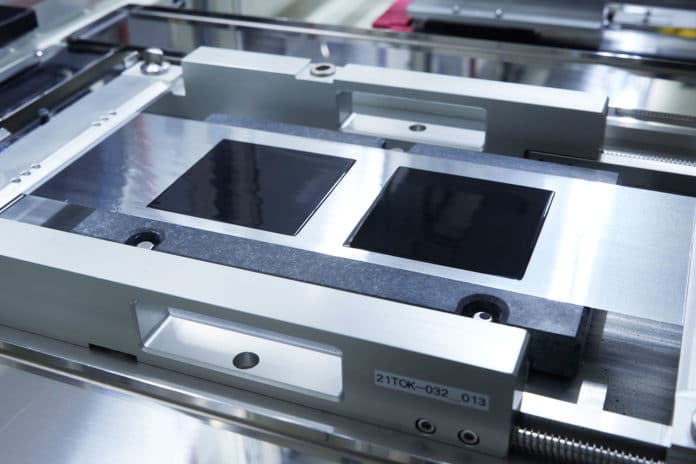Japanese automaker Nissan has unveiled its prototype production facility for laminated all-solid-state battery cells, which the company aims to bring to market in 2028. This prototype facility, within the Nissan Research Center in Kanagawa Prefecture, is aimed to further promote the development of all-solid-state batteries.
All-solid-state batteries are expected to be a game-changing technology for accelerating the popularity of electric vehicles. These batteries claim to have energy density approximately twice that of conventional lithium-ion batteries, significantly shorter charging time due to superior charge/discharge performance, and lower cost thanks to the opportunity of using less expensive materials. This is why the commercialization of solid-state batteries is a quest being pursued by a number of the biggest players in the auto industry.
Last year Nissan joined the quest, announcing plans to launch an EV with its own all-solid-state batteries developed in-house by fiscal 2028 as part of the car maker’s Nissan Ambition 2030 roadmap. And now, the unveiling of the prototype production facility marks the first step toward this goal.
Nissan plans to establish a pilot production line at its Yokohama Plant in fiscal 2024, with materials, design, and manufacturing processes for prototype production on the line to be studied at the prototype production facility. The automaker believes all-solid-state batteries can be reduced to $75 per kWh in fiscal 2028 and to $65 per kWh thereafter, placing EVs at the same cost level as gasoline-powered vehicles. With the benefits mentioned above, Nissan expects to use all-solid-state batteries in a wide range of vehicle segments, including pickup trucks, making its EVs more competitive.
“Nissan has been a leader in electrification technology through a wide range of R&D activities, from molecular-level battery material research to the development of safe, high-performance EVs. Our initiatives even include city development using EVs as storage batteries,” said Kunio Nakaguro, executive vice president in charge of R&D. “The knowledge gained from our experience supports the development of all-solid-state batteries, and we’ve accumulated important elemental technologies. Going forward, our R&D and manufacturing divisions will continue to work together to utilize this prototype production facility and accelerate the practical application of all-solid-state batteries.”
